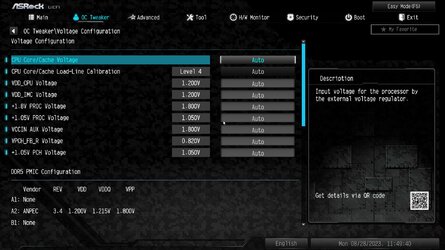Hello guys
New here, hoping i could get some help from some more knowledgeable people than me - Ive recently bought the 13600k to match with my 4070.
After buying it, and my AsRock B760 Steel Legend mortherboard - i found out the "problems" this gen has with default overvolting that makes the cpu run hot.
So ive decided i wanna get on the OC/optimization train - and afaik, i will need a Z-chipset motherboard to do so?
I dont really know what to get though, ive been looking at the AsRock z790 PG Sonic/riptide - but i am not sure, but it has to be in that pricerange - i dont want a crazy expensive motherboard, but i still want something decent that can handle optimizing/OC/undervolting etc.
Hope you guys can help - Ty in advance.
New here, hoping i could get some help from some more knowledgeable people than me - Ive recently bought the 13600k to match with my 4070.
After buying it, and my AsRock B760 Steel Legend mortherboard - i found out the "problems" this gen has with default overvolting that makes the cpu run hot.
So ive decided i wanna get on the OC/optimization train - and afaik, i will need a Z-chipset motherboard to do so?
I dont really know what to get though, ive been looking at the AsRock z790 PG Sonic/riptide - but i am not sure, but it has to be in that pricerange - i dont want a crazy expensive motherboard, but i still want something decent that can handle optimizing/OC/undervolting etc.
Hope you guys can help - Ty in advance.
